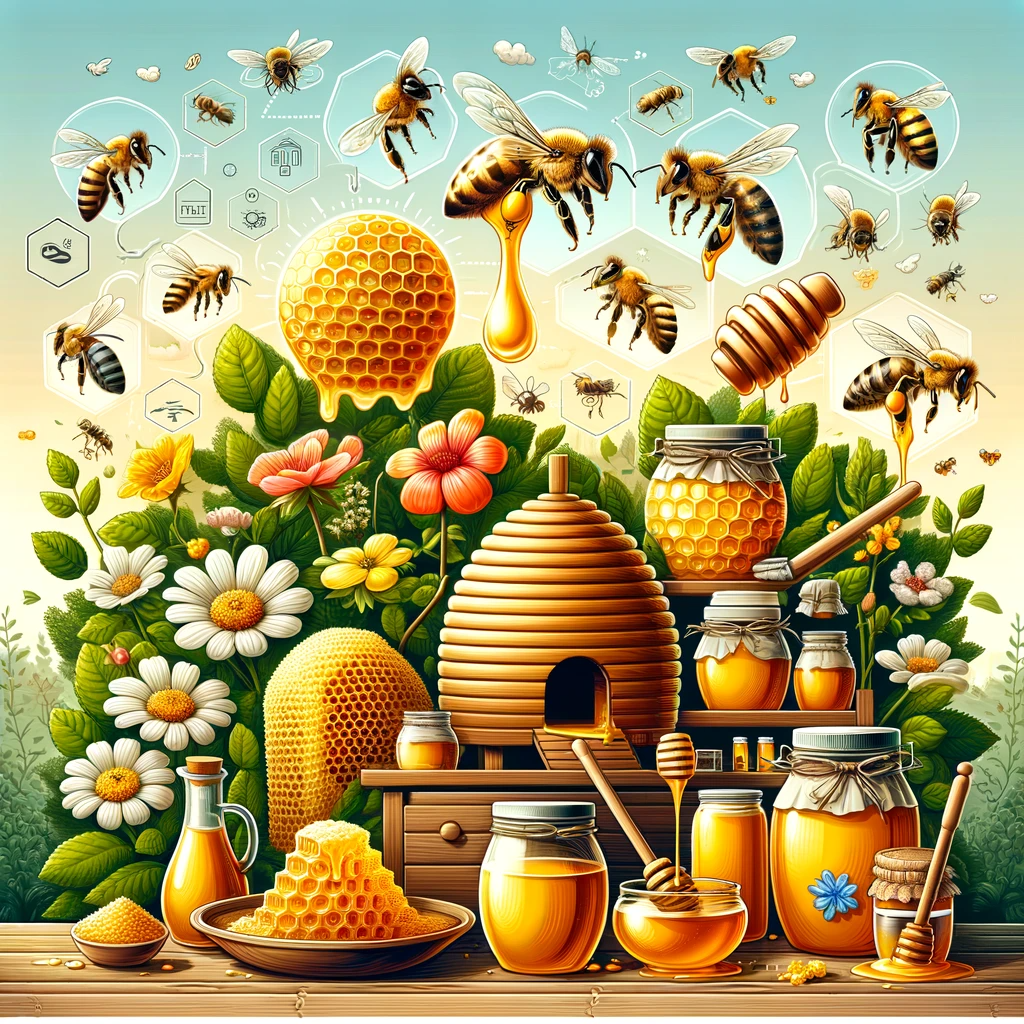Honey, a sweet and golden elixir derived from the nectar of flowers, has been cherished throughout history for its medicinal properties. In American folk medicine, honey has played a significant role as a healing ingredient, offering an array of benefits that have been passed down through generations. In this article, we will explore the historical importance of honey in American folk medicine and delve into its diverse applications.
The Ancient Roots of Honey as Medicine
1. Ancient Civilizations
- Honey’s use in medicine dates back thousands of years to ancient civilizations such as Egypt, Greece, and China.
- These cultures recognized honey’s antibacterial and anti-inflammatory properties, using it to treat wounds and various ailments.
2. Native American Remedies
- Native American tribes across the United States valued honey as a natural remedy.
- Honey was applied topically to soothe burns, cuts, and insect stings.
Honey as a Natural Antibiotic
1. Antibacterial Properties
- Honey contains hydrogen peroxide and other compounds that inhibit the growth of bacteria.
- In the absence of moisture, honey creates an environment that is hostile to bacteria.
2. Wound Healing
- Honey’s ability to prevent infection and promote tissue regeneration made it a staple in treating wounds.
- Its use in wound dressings persisted in American folk medicine.
Coughs and Sore Throats
1. Soothing Qualities
- Honey’s natural sweetness and soothing properties have long been recognized as effective in alleviating coughs and sore throats.
- Many traditional cough syrups and throat lozenges contained honey as a key ingredient.
2. Modern Research
- Recent studies have validated honey’s effectiveness in reducing cough severity and improving sleep quality, especially in children.
Digestive Health
1. Relieving Indigestion
- Folk medicine often prescribed honey to alleviate indigestion and stomach discomfort.
- Its anti-inflammatory properties may help soothe the digestive tract.
2. Combating Diarrhea
- Honey’s antimicrobial properties can assist in managing diarrhea, a common ailment in early American history.
Allergy Management
1. Local Honey Theory
- Folk wisdom suggests that consuming local honey can help build immunity to pollen allergies.
- Although not scientifically proven, this belief persists in many regions.
Conclusion
In conclusion, honey’s role in American folk medicine reflects its rich history as a natural remedy. From ancient civilizations to Native American tribes, honey’s healing properties have been revered for centuries. Its use as an antibiotic, cough and sore throat remedy, digestive aid, and potential allergy management tool has left an indelible mark on American healthcare traditions. While modern medicine has provided new treatments, honey’s historical significance in folk medicine should not be forgotten, reminding us of the timeless wisdom found in the natural world. So, the next time you reach for a jar of honey, remember its historical role as a healing ingredient in American folk medicine.
